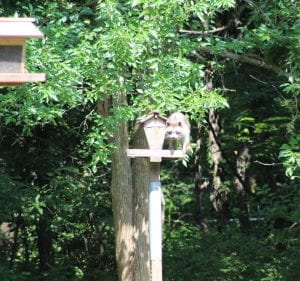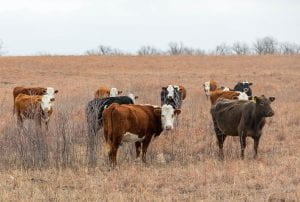Drew Ricketts, wildlife management and control specialist
 Raccoons are very intelligent, resourceful animals that often live around farmyards in hollow trees, holes created by other animals, brush piles, abandoned vehicles and farm machinery, and buildings. Raccoons are omnivorous, meaning that their diet is very diverse and can include plant material such as fruits and nuts, animal matter from earthworms and insects to reptiles, amphibians, small mammals and birds. While raccoons are fascinating animals, their broad diet, intelligence, and willingness to live close to humans can lead to conflicts with people and pets and the need for some form of control. Continue reading “Coping with Rascally Raccoons”
Raccoons are very intelligent, resourceful animals that often live around farmyards in hollow trees, holes created by other animals, brush piles, abandoned vehicles and farm machinery, and buildings. Raccoons are omnivorous, meaning that their diet is very diverse and can include plant material such as fruits and nuts, animal matter from earthworms and insects to reptiles, amphibians, small mammals and birds. While raccoons are fascinating animals, their broad diet, intelligence, and willingness to live close to humans can lead to conflicts with people and pets and the need for some form of control. Continue reading “Coping with Rascally Raccoons”
